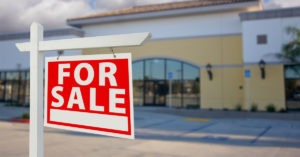
What makes one business better than another when you are buying a business? Some of the considerations are obvious. Others are not. As you explore the business landscape, keep in view these 12 markers for choosing a business.
1. Location
Is the location of the business convenient? Is it close to your home? Is it in an area where you wish to live? Is it easily accessible? Does it offer room for expansion or growth? How desirable is the location for prospective and existing clients? Keep in mind changing demographics.
Are the premises rented or owned and, if rented, what are the lease terms? Are they consistent with other similar locations? Are they affordable based upon the business cash flow? Is the lease cost in line with standards for this industry? How long is the lease? Can it be renewed or extended?
Is the facility profile consistent with your vision of what you want the business to become? Will you have to relocate in the future and at what cost?
2. Equipment, Fixtures, and Furniture
In what condition are the equipment, furniture, and fixtures? Are they adequate to support the current and future operations of the business? What capital expenditures will be required in future and when? Are they obsolete from a technology or maintenance-and-operating-cost perspective? Are parts and service readily available?
3. The product or service
Will there be continuing demand? What are the differentiators that keep clients coming back? Will you be proud to provide the product or service? Can you add value? Can you depend upon the supply? Is there room to increase margins by cutting costs or increasing price?
4. Inventory
Is the inventory current and saleable? Is it excessive for the industry or in line with industry standards?
5. Trained employees
Does the business have competent, experienced, and motivated staff? Is the compensation in line with industry standards?
Will the staff stay? How will you recruit and train new staff? Is the business overstaffed or understaffed?
Is the corporate culture consistent with your values? Are you compatible with key employees?
6. Existing customer base
Can existing clients be retained through the ownership transition? Can the client base be expanded?
How loyal are the clients? Are they happy with the current product or service offerings? What additional products or service do existing clients want?
How does the business communicate with existing clients? Can you improve on this?
7. Established suppliers
How does the business relate to its suppliers? What are their credit terms? Can you sustain or improve upon the relationship? Does the business have exclusive arrangements/rights? Is there a dependency on any single supplier? Exclusive arrangements with suppliers can be a significant asset of a business whereas dependency on a single supplier can represent risk.
8. Competition
Who are the competitors? What differentiates this business from theirs? Is this business vulnerable? Is theirs—if so, are there minor changes you could make to secure the patronage they currently enjoy and increase the revenue and profit of this business? We often find unused distribution channels that can be highly profitable.
9. The industry
What are the prospects for the industry at a macro and a micro level? How will they be affected by changing technology, lifestyle and demographics? Consider video-rental businesses or corner stores and how technology and changes in the grocery industry have affected them.
10. Established cash flow
Will the cash flow be sufficient to service your debt, support your family and lifestyle, and provide a return on your invested capital? Is the cash flow consistent or erratic? Can it be maintained? Can it be increased?
Do not confuse a business that does not report profits with one that is unprofitable. Small business owners do their record keeping to minimize tax. Your business broker will have recast the income statement to illustrate seller’s discretionary earnings. This is the amount of cash flow available.
11. Financial records
Does the business maintain a complete and accurate accounting system that you can rely upon? Are the accounting records current? Are financial filings current?
Small businesses do not have audited financial statements. Base your decision upon the records that are available. With some businesses you will have to look at purchases and cost of goods sold and standard margins to determine actual revenue. In most businesses the recasting will remove expenses that were incurred to support the lifestyle of the owner and are not necessary to operate the business and generate revenues.
12. Systems and procedures
Does the business have systems—documented “ways of doing things”—to achieve consistent predictable results?
A business with well-documented systems has greater value than a business that is operated from the head of the owner and his/her key employees. Systems reduce risk and liability, result in shorter training times, improve employee performance, and focus energies and activities on the business objectives.
Thinking through these 12 factors before you buy will help you find your best-fit business. You will never regret making a well-informed purchase decision.
Author: Greg Kells

